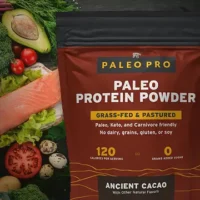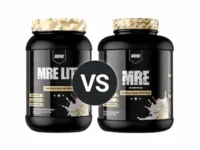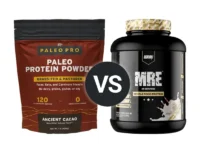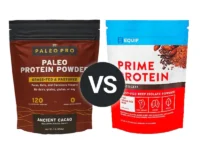Knowledge BaseYou're Questions Answered
What is beef protein powder?
Beef protein powder is a dietary supplement made from hydrolyzed beef protein isolate. It is derived from the protein-rich parts of beef, such as muscles, tissues, and bones, which are processed to extract the protein. This protein powder is an alternative to more common sources like whey or plant-based proteins, and it offers a high-quality protein source suitable for those looking to avoid dairy, soy, or other allergens.
Production and Types of Beef Protein Powder
Beef protein powder is produced by hydrolyzing beef to break down the protein into smaller peptides, making it easier to digest and absorb. The process typically involves boiling beef parts, filtering out the protein, and then drying and pulverizing it into a fine powder. The resulting product is rich in protein and free from lactose and other dairy components. Key types include:
- Hydrolyzed Beef Protein Isolate: The most common form, which has been processed to remove fats and carbohydrates, leaving a high-protein content.
- Collagen Protein: Some beef protein powders are specifically designed to provide collagen, a protein found in connective tissues, which is beneficial for skin, joints, and gut health.
Nutritional Profile and Benefits
Beef protein powder is known for its high protein content and complete amino acid profile, making it a valuable supplement for muscle growth and recovery. Key nutritional aspects and benefits include:
- High Protein Content: Typically provides around 20-25 grams of protein per serving, depending on the product, which is effective for supporting muscle protein synthesis1.
- Complete Amino Acid Profile: Contains all essential amino acids, necessary for muscle repair, growth, and overall health. It is particularly high in amino acids like glycine, proline, and hydroxyproline, which are beneficial for collagen production2.
- Low in Carbohydrates and Fat: Especially in its isolate form, beef protein powder is low in carbs and fats, making it suitable for low-carb and ketogenic diets.
- Allergen-Free: Free from common allergens like dairy, soy, and gluten, making it a suitable option for individuals with allergies or sensitivities to these ingredients.
- Digestibility: Hydrolyzed beef protein is processed to be easily digestible, which can help reduce digestive discomfort compared to whole protein sources.
Uses of Beef Protein Powder
Beef protein powder can be incorporated into the diet in various ways, including:
- Protein Shakes and Smoothies: A convenient way to consume beef protein, especially post-workout for muscle recovery.
- Baking and Cooking: Can be added to recipes for baked goods, soups, and stews to enhance protein content.
- Meal Replacement: Suitable for use in meal replacement shakes or bars as a high-protein, low-carb option.
- Jäger, R., Kerksick, C. M., Campbell, B. I., Cribb, P. J., Wells, S. D., Skwiat, T. M., ... & Purpura, M. (2017). International Society of Sports Nutrition Position Stand: protein and exercise. Journal of the International Society of Sports Nutrition, 14(1), 20.
- Shaw, G., Lee-Barthel, A., Ross, M. L., Wang, B., & Baar, K. (2017). Vitamin C–enriched gelatin supplementation before intermittent activity augments collagen synthesis. American Journal of Clinical Nutrition, 105(1), 136-143.
Related Questions
Related Reviews
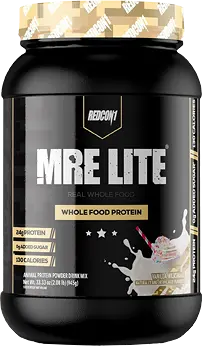
Your Answer
We are a participant in the Amazon Services LLC Associates Program, an affiliate advertising program designed to provide a means for us to earn fees by linking to Amazon.com and affiliated sites.


